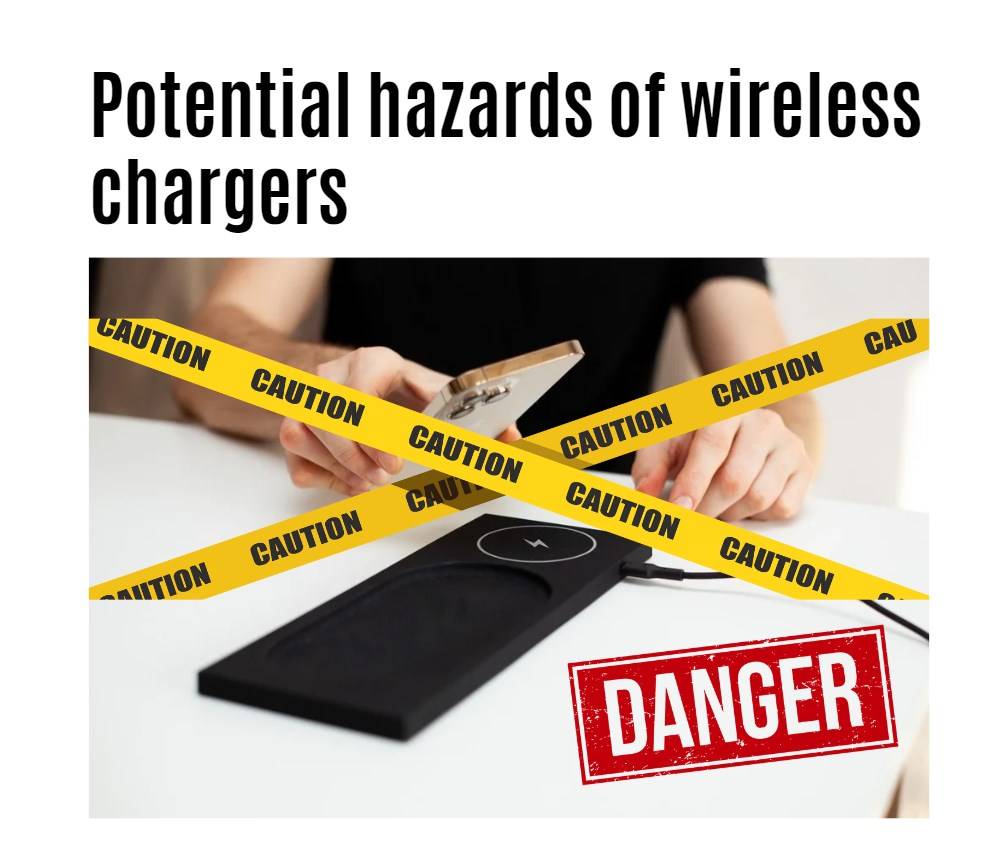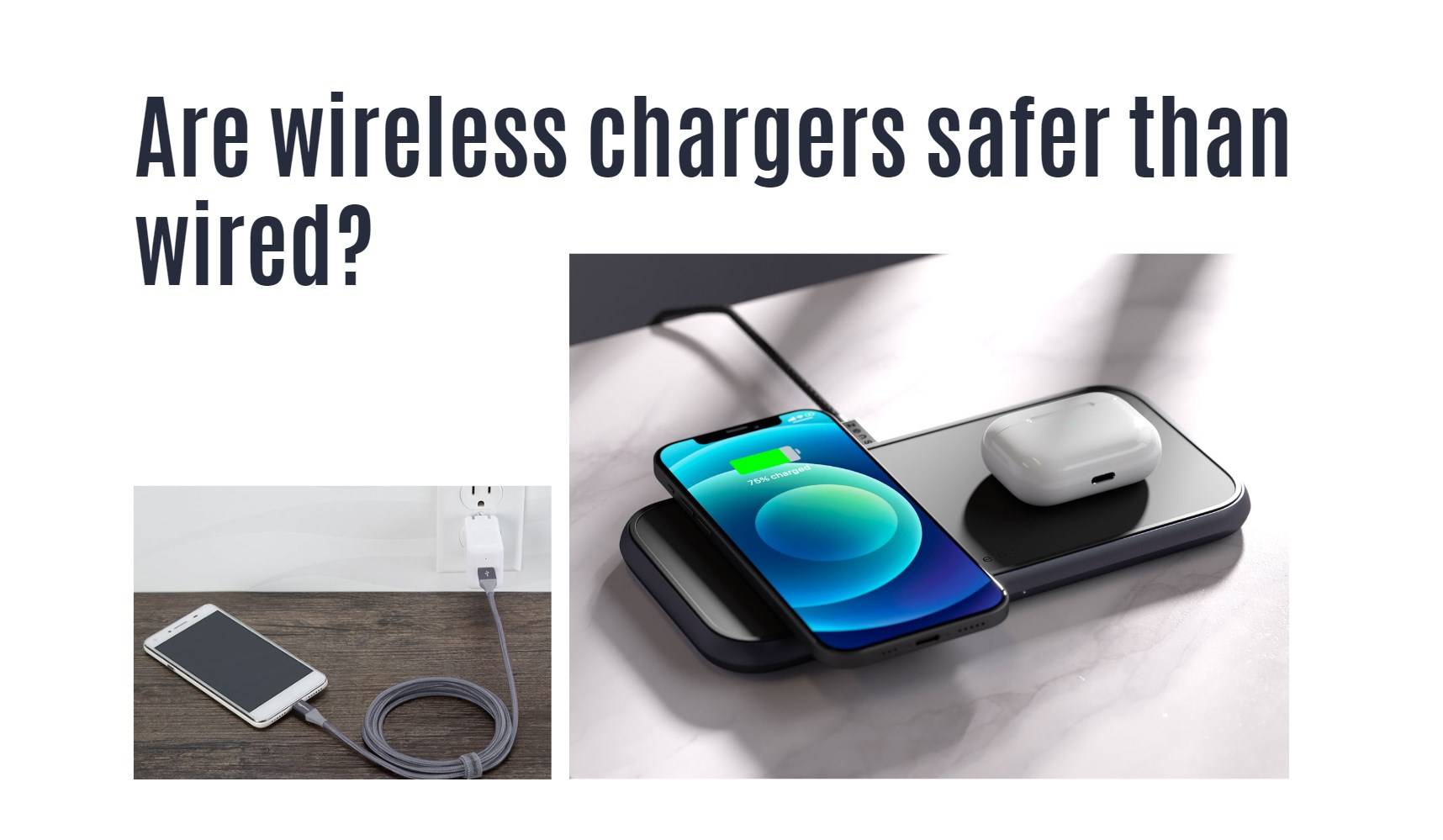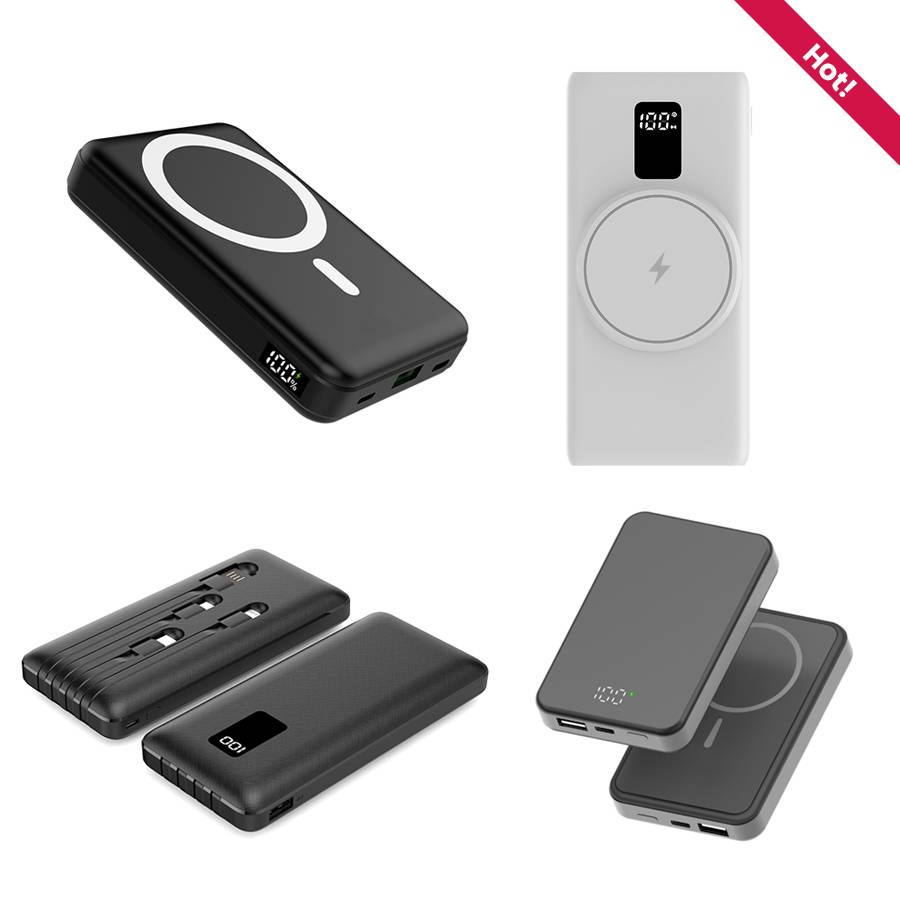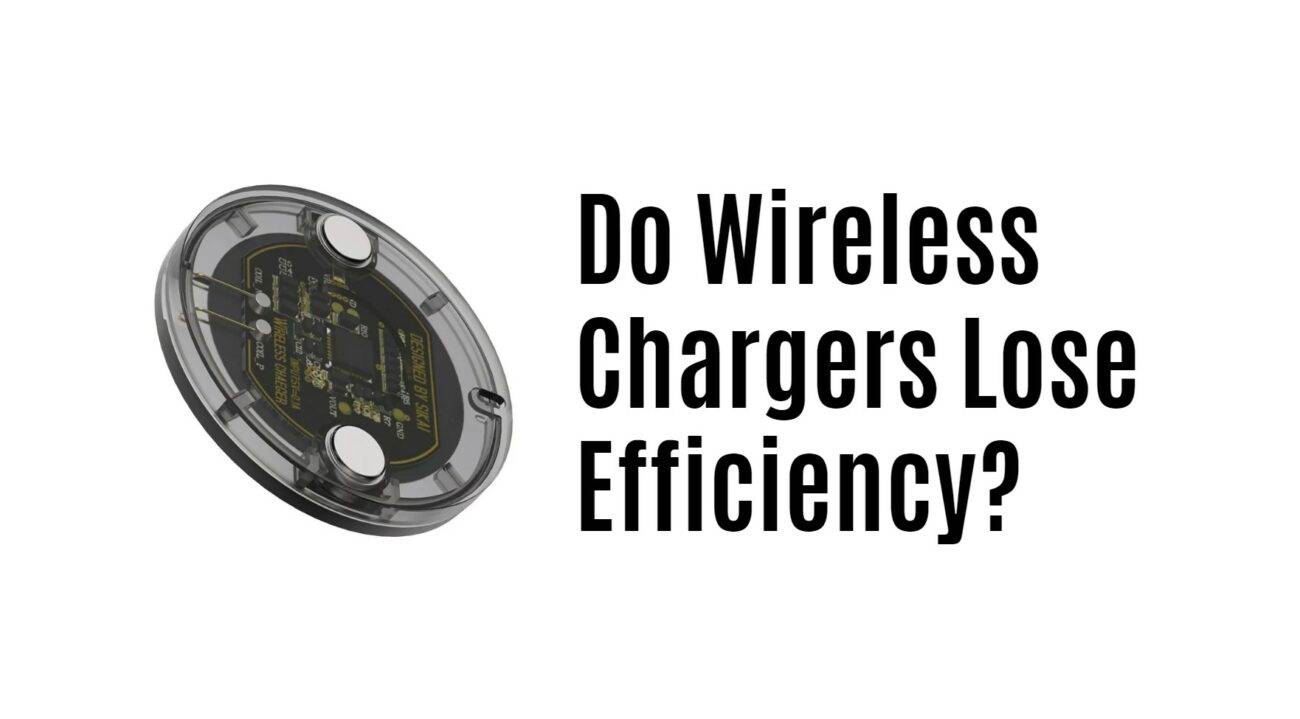Are you tired of tangled cords and fraying wires? Looking for a more convenient way to power up your devices? Enter the world of wireless chargers! These sleek and cutting-edge gadgets have taken the tech market by storm, offering a hassle-free solution to charging our smartphones, tablets, and other electronic devices. But are they truly safer than their traditional wired counterparts? In this blog post, we’ll delve into the world of wireless charging technology, explore its safety concerns compared to wired chargers, and uncover the advantages and disadvantages it brings. So sit back, relax, and get ready to untangle the truth behind these futuristic chargers!
How wireless chargers work
Wireless chargers have become increasingly popular in recent years due to their convenience and ease of use. But how do they actually work?
At the heart of a wireless charger is a technology called electromagnetic induction. This process involves two coils: one built into the charging pad, and another embedded within the device being charged, such as a smartphone or smartwatch.
When you place your device on the charging pad, an alternating current passes through the coil in the charging pad. This creates a magnetic field around it. The coil in your device then picks up this magnetic field and converts it back into an electrical current, which charges your battery.
Essentially, wireless chargers transfer energy from the main power source to your device without any physical connection between them. It’s like magic!
This technology relies on precise alignment between the coils for efficient charging. That’s why some wireless chargers come with features like magnets or positioning guides to help ensure proper placement.
While wireless chargers are incredibly convenient, they do have some limitations compared to wired chargers. For instance, they tend to be slower at charging devices than traditional wired methods.
However, advancements are continuously being made in wireless charging technology to improve efficiency and speed. So who knows what exciting developments we’ll see in the future?
Safety concerns with wired chargers
When it comes to charging our devices, most of us rely on the convenience and speed of wired chargers. However, there are some safety concerns associated with using them.
One common issue is the risk of electrical surges or short circuits. If a charger is defective or damaged, it can send too much power to your device, potentially causing overheating or even fires. It’s crucial to regularly inspect your charger for any signs of wear and tear and replace it if necessary.
Another concern is the use of counterfeit chargers. These cheap knock-offs may not meet the necessary safety standards and could pose a serious risk. Always purchase chargers from reputable sources to ensure their quality and compliance with safety regulations.
Additionally, using wired chargers often involves dealing with tangled cords that can create tripping hazards or accidentally pull devices off surfaces. This can result in damage to both the charger and your device.
To minimize these risks, make sure you use certified chargers specifically designed for your device model. Additionally, avoid charging your devices overnight or leaving them unattended while plugged in as a precautionary measure against potential accidents.
While wired chargers have their drawbacks in terms of safety concerns, they continue to be widely used due to their fast-charging capabilities. However, it’s important always to prioritize safety when selecting and using these accessories for our electronic devices
Potential hazards of wireless chargers
While wireless chargers offer convenience and ease, it’s important to be aware of the potential hazards they may pose. One concern is the risk of overheating. Since wireless charging relies on electromagnetic induction, there is a possibility that excessive heat can build up during prolonged charging sessions.
Another hazard to consider is compatibility issues. Different brands and models may have varying power requirements, which could lead to improper charging or even damage to your device. It’s crucial to ensure that your device is compatible with the specific wireless charger you’re using.
Additionally, some studies suggest that extended exposure to electromagnetic fields (EMF) emitted by wireless chargers might have health implications. While current research remains inconclusive, those who are concerned about EMF exposure may prefer wired chargers as a precautionary measure.
Furthermore, one drawback of wireless chargers is their slower charging speed compared to wired options. If you’re in a hurry and need your device charged quickly, a wired charger may be more suitable for your needs.
It’s worth mentioning that placing metal objects between the charger and your device can interrupt the flow of energy and potentially cause accidents like short circuits or electrical shocks.
While wireless chargers undoubtedly provide convenience and eliminate messy cables, it’s essential to weigh their advantages against these potential hazards before deciding whether they are right for you.

Advantages of using wireless chargers
1. Convenience: One of the biggest advantages of using wireless chargers is the convenience they offer. With a wired charger, you have to deal with tangled cords and finding an outlet to plug it into. But with a wireless charger, all you need to do is place your device on the charging pad and it starts charging automatically.
2. Less wear and tear: Wired chargers often suffer from wear and tear due to constant plugging in and unplugging. This can lead to frayed cords or damaged ports on your devices. On the other hand, wireless chargers eliminate this problem entirely as there are no physical connections that can get worn out over time.
3. Safer for your devices: Wireless chargers are designed with safety features that protect your devices from overheating or overcharging. They use advanced technology like temperature control and voltage regulation to ensure a safe charging experience.
4. Versatility: Wireless chargers are compatible with a wide range of devices, including smartphones, smartwatches, tablets, and even some laptops. This versatility makes them ideal for households with multiple devices as you can charge different types of gadgets without needing separate cables or adapters.
5.Ease of use: Using a wireless charger requires minimal effort or technical know-how compared to wired chargers which may require inserting plugs into sockets or connecting various cables together.
In conclusion,
Wireless chargers provide numerous advantages over their wired counterparts – convenience, reduced wear-and-tear risks, enhanced device safety features, compatibility across multiple device types,and ease-of-use being some key benefits worth considering when deciding between wired and wireless charging options.
Disadvantages of using wired chargers
In today’s fast-paced world, the convenience of wireless charging has become increasingly popular. However, it is important to weigh the pros and cons before ditching your wired charger altogether. While wireless chargers offer a level of convenience and flexibility that wired chargers cannot match, there are still some disadvantages to consider.
One major drawback of using wired chargers is their potential safety hazards. The use of cords and cables can create tripping hazards, especially in busy environments or households with young children. Additionally, frayed or damaged cables can pose a risk of electrical shock or fire if not properly maintained.
Another disadvantage of wired chargers is their limited mobility. With a wired charger, you are bound by the length of the cord, which may restrict your ability to comfortably use your device while charging. This becomes particularly inconvenient when traveling or in situations where access to power outlets is limited.
Wired chargers also tend to be less durable than their wireless counterparts. Frequent bending and twisting of cables can lead to fraying or breaking over time, requiring more frequent replacements.
The clutter caused by multiple wires connected to various devices can be frustrating and unsightly. It often leads to tangled cords that require constant untangling.
While these disadvantages exist for wired chargers, it’s essential to note that they have been widely used for many years without significant issues for most users. Wired charging remains reliable and efficient when done correctly with well-maintained equipment.
Whether you choose a wireless charger or stick with traditional wired options will depend on your personal preferences and needs. If convenience outweighs any potential drawbacks for you, then investing in a wireless charger may be worth considering.
When making this decision about which type of charger works best for you – always prioritize safety first by ensuring that any charging equipment being used adheres strictly to industry standards and recommendations
So now armed with information about both types of chargers – make an informed choice that suits your lifestyle and charging needs.



